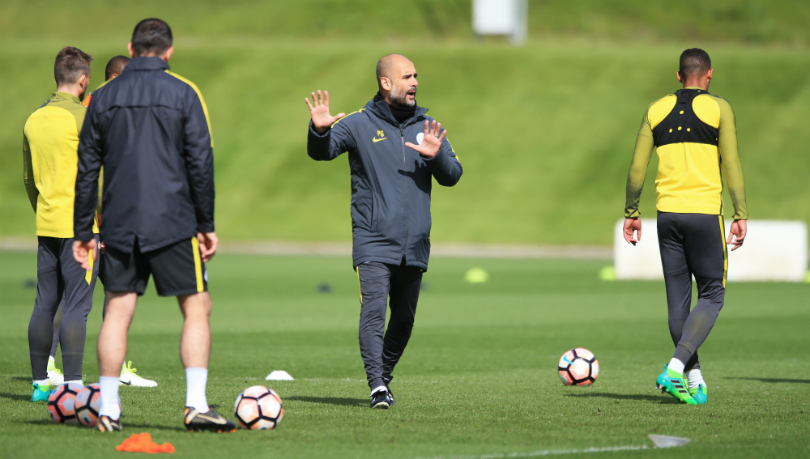The DNA of a great coach
What makes a great manager? FFT asks a host of former Premier League players about their experiences with some of the game's best coaches

Kevin Phillips pauses for thought. FFT has just asked him what he thinks makes a great manager. “It’s clarity,” he replies. “It’s being able to get your message across as simply as possible.”
Phillips’ opinion is a valuable one. He played under 22 different coaches in a 23-year playing career. The former striker is now a member of Derby County’s backroom staff having also spent a brief period working under Claudio Ranieri at Leicester City.
Related story: How to explain tactics
“Working with Claudio was an eye opener, he was a wonderful communicator,” he continues. “Players came out of team meetings and knew what he wanted from them. I’ve been at clubs where they haven’t had a clue. I expected him to be a real 21st century coach, but his approach was very simple.”
FFT spoke to a host of former Premier League players to talk about their experiences working with some of the game’s best managers to find out what it takes to be a success in the dug-out.
“You could have a beer with Terry Venables”
Ex-Blackburn Rovers striker Matt Jansen – who is now in charge of National League North side Chorley – says sound man-management is a necessity to get the best out of players. “The best managers are the people who can deal with individuals because everyone is different.
Get FourFourTwo Newsletter
The best features, fun and footballing quizzes, straight to your inbox every week.
“Sam Allardyce was brilliant – he had sports psychologists working with him, so he could deal with every player one-on-one. Terry Venables at Crystal Palace was another great man manager – you could sit and have a beer with him.”
Related story: Three body language tips for managers
Luke Chadwick was given his first team debut at Manchester United by Sir Alex Ferguson and has fond memories of his personal touch. “Fergie made you feel important,” he told FFT. “Even at Under-9 and Under-8 level he knew your name and asked you about your family. He made you feel amazing.”
Unfortunately not all managers are as blessed in the art of communication. Gifton Noel-Williams, who started out at Watford before going on to play for 10 different clubs in a career plagued by injury, remembers working with Gianluca Vialli at Vicarage Road.
“I was diagnosed with arthritis when I was 19 and told to retire,” he says. “I could play 90 minutes on a Saturday but then couldn’t train all week. Vialli thought I was having him on. He called me lazy and scared. He accused me of not wanting it enough and said he wouldn’t play me unless I trained.”
“Pulis was a genius psychologically"
Dealing with a dressing room full of different personalities means managers must be psychologically astute. It’s an area of management that Jansen understands well.
Back in 1999 he was a 23-year-old England international who had twice rejected Manchester United in favour of moves to Crystal Palace and Blackburn. But he was never the same player after sustaining a brain injury in a motorbike accident.
Jansen made a full recovery but the incident left mental scars. “My confidence was crushed,” he remembers. “I went to see brain specialists and kept complaining to the doctor that I didn’t feel right, but they didn’t know what was wrong with me.”
Related story: Building confidence in young players
Rovers boss Graeme Souness sent him to see psychiatrist Dr Steve Peters in a bid to solve his mental issues. “Graeme was very supportive,” adds Jansen. “He was old school – he wanted players to roll their sleeves up - but he was happy for me to go and see Steve – I must’ve had 100 hours with him in the end.”
Noel-Williams says Tony Pulis was another manager who understood the mental side of the game. “He would get in your head,” he said. “He’d say to me ‘these two centre-backs are going to beat you up son’. Then he’d say to Ade Akinbiyi ‘they’re all saying you can’t run anymore’, to wind him up.”
“Wenger and Ferguson made training fun”
With the average lifespan of a manager now just 17 months, the pressure on the modern coach has never been greater. However, former United midfielder Quinton Fortune says creating a fun working environment is crucial.
“At Man United, it was competitive, but it was fun,” he said. “Sir Alex created an environment where the work ethic was ridiculous and players were allowed the freedom to enjoy their football and try different things. I’d love to know how he created that culture."
Related story: How to design a training session
Ferguson spent 26 years at Old Trafford, with one of his closest managerial rivals, Arsene Wenger, now in his 20th year at Arsenal. Fabrice Muamba played under the Frenchman for the Gunners and says the two managers had similar qualities.
“You have to have a training ground that’s a place of work but somewhere that’s enjoyable to come in to,” he added. “Wenger and Ferguson were both able to do that.
“Arsene had the ability to put on a session that captured everyone’s attention. When he made a point it was short and sharp and he allowed the players to find a solution rather than just giving them the answer. That gave the players trust and confidence.”
"If you rant and rave, younger players don’t fear you"
But will those same qualities be enough for the modern manager to succeed? Jansen believes the next generation will need an additional set of skills to handle 21st century players.
“We need to change the type of manager that we’re producing in this country. Players have changed. When I was in an academy, I was cleaning boots and kit.
"I barely kicked a ball on £27.50 a week as a YTS. Some of them are on £5000 a week and they’re superstars before they’ve made it.
Related story: Getting the best out of young players
“It’s a completely different environment. I was shit scared of the first team. Now they walk around like they’ve made it. If you rant and rave and the younger players don’t have that fear. You have to tap into each character I feel.
Chadwick adds: “First and foremost I think it’s about being a good person. If you’re not a good person, people won’t respect you. Karl Robinson is a good example of a good young manager at MK Dons. He had such enthusiasm and warmth – that approach is the one that will work with the modern player.”
Related stories
Gareth Southgate: How to simplify tactics
